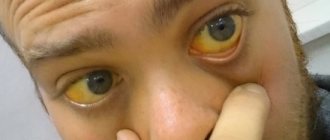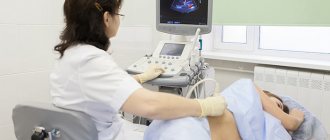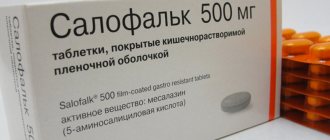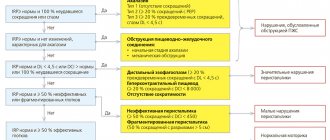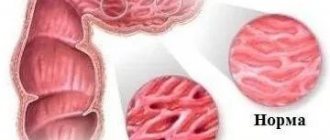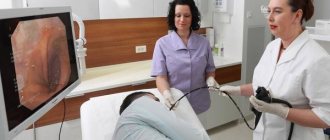Making an appointment with a doctor at the diagnostic center at the State Budgetary Healthcare Institution Mknts named after A. S. Loginov, Department of Health
Lana
You understand, the characteristic for Klimets is what you can do to protect the dignity of a doctor. ????I understand you!!Then the question arises - with such a description, was it a biased attitude towards me???! She should have heard me what I have in my anamnesis. From the drugs she prescribed, Dexamethasone and Ketoprofen, and other drugs, problems arose: (exacerbation of stomach ulcers, kidney ulcers and exacerbation of the liver, gastrointestinal tract infection. I warned... but they didn’t want to hear me. A competent doctor is obliged to know the patient’s medical history in order to prescribe the correct treatment choice of drug..(she ignored the dialogue with the patient). They did not alleviate the patient’s condition, and in 5 days they simply turned me into a seriously ill patient, and even miraculously survived, and this is a competent “”” doctor???? But what are they needed for? were these drugs??? .) A competent doctor needs to hear the patient.!!! Reanimation, caused by gastroscopy. My blood pressure was brought down to 200*160.m/s:: administered magnesium (I’m hypotensive) imagine with a hell of a headache (could have been a stroke) m/sister didn’t get there into a vein and gives me a hell of a pain under my skin, until I persistently asked to take the needle out, since it wasn’t in a vein, she argued that it was in a vein (,??!!) until the doctor saw and asked to pull out the needle, since the vein was swollen . The arm was swollen all burgundy-blue and (the vein is good..) There are photos. And they didn’t do it because of the pressure, but they did propafol (after gastroscopy). Why not do it BEFORE the procedure??) and suprastin and left right away. .The hellish pain did not stop, the pressure did not drop, I was moaning from wild, skull-splitting pain, until the gurney arrived, it seemed like an eternity. And half an hour later they called a Psychologist and quickly prepared a discharge, everything was urgent and asked to leave in this condition. And there is no record of this in the epicrisis. (Gastrointestinal protocol not indicated in the epicrisis), (I warned what could happen to me during a gastroscopy. ?!! She didn’t even want to hear. Categorically - “YES” or “No”??!”, . You know there are a lot of mistakes made - where just they don’t hear the patient. And, of course, you will support her and protect her, (we don’t abandon our own)!!! This is clear. But, miraculously, I survived. .absolutely unnecessary medications ,,prescribed by her..and prof..,to end up in such a state. Let me remind.this is .the .department. diagnostics—Treatment is carried out in a course!! We just quickly tried to get rid of it... or maybe lower the readings and write it out. The characteristics justify her actions. You can’t describe everything... I’m not able to go to the administration right now, but I would really like to, I would really like to describe everything in detail and correctly. Let's say today.Cl. not a bad doctor, but she did not show a competent approach to me... and in this state after the crisis 200 * 160, with an injection of narcotic)) propafol)) and suprastin 2 ml (as she said herself) and the epicrisis was not noted. Further, how in such a state, under the influence of these drugs, how could I leave in a semi-drowsy state and barely moving my tongue and with a shakiness and a headache. In this state (they didn’t get upset, call a psychologist) In this state, they are taken to the hospital, a stroke may occur. You will support your colleague in every possible way with character references and other methods.. This is a violation of behavior and doctor ethics. I thought. What??? is this? will go unnoticed. ??? and it will work out. You need to learn a lot in order to be not just a (experienced) doctor, but also have human qualities. Working with people. And with patients you need experience., practice and human qualities with nutritional knowledge. How to understand the diagnosis: “probable” “rheumatritisantifosfl.syndrome is also probable””” ???and even though the diagnosis has not been established, he is referred to the ITU, is this correct?! You understand verbally and professionally and she said, “Yes, you have R/arthritis, according to the tests,” I myself knew that these autoimmune processes 2 were present based on how I felt and according to the tests. I’m not illiterate!!. Is this discrimination??!! And connect with emotions. Not everything is written in the epicrisen correctly, but very thoughtfully.. No one was worried about my condition at all. It was severe. In my entire life I have never had an allergic reaction, much less hives. This is my health. And I would have reported it. But read how she described it in the epicrisis. Everything about her is doubtful. I came to confirm the diagnosis (and then at the insistence of the head of the clinic,. What did they bring me to in five days? - to bed rest, with an exacerbation of: liver, stomach ulcers, ... kidneys, ... spine in a terrible state.,, after these drugs were prescribed by an “experienced and competent” doctor. I wanted to reduce the indicator of inflammation of the process and discharge her in a satisfactory condition according to the indicators) DECLARING I WAS IN SATISFACTORY CONDITION upon admission. .After being discharged from the hospital, I had to call the emergency room (2 days. You can check). I understand that you will defend in every possible way (and that’s the whole problem), she is your colleague, the image of your MCSC.. But..., my life and my health are not for me either it doesn’t matter. And the fact that I simply endured, and remained silent on many other actions... And in this state they tried to simply write it out quickly. You prepared a description. They could have treated it humanely. But did they have the right to let him go in such a state? They should take appropriate actions. There are risks, and huge ones. during a crisis. And they needed to get rid of it quickly. 1.5 hours after a hypertensive crisis with pain and under the influence of the drug. I suffered a lot and it was scary in this state.)). I asked to be escorted to the taxi room. patient, I didn’t dare to describe it for a long time. But on the eve of the holidays it was so terrible. I can’t eat anything. I can’t straighten my back. Everything hurts!! Well, why??? Because of her ambition and attitude. I went to the hospital in complete satisfaction. everything was in much better condition; I received a bunch of side effects and, as a disabled person, I am lying with wild pain and terrible exacerbation. And there was no need for an injection because there was absolutely no wild pain. They kept ME for only 5 days.) Prescribing these drugs irresponsibly and ruining my health, with such side effects. Why were they needed??. at that time, there was no need. And you write “experienced”????!!!doctor. Manners and ambition: “I decide.” “YES or NO” ..This is the result of the behavior and manners of an experienced doctor. What do I need an apology for??? I’m in such a state and it’s terrible that there are no working days ahead. Horror. and wild pains And you can’t go to the doctors. You know, I could very well have had a stroke. And it’s not a fact that it turned out later, I’m at risk. That’s why we were in a hurry. She is very “experienced” in such cases and decided to play it safe. Miraculously, she survived. Maybe this the case will lead to correct treatment of other patients. The doctor is obliged to make contact and listen to the patient. (And not in the corridor, but in the ward, how does she do it??) And even if she has hostility, she is a doctor. She is obliged to cope with it, since life depends on correct behavior, and one injection can play an unpredictable role. Everything is individual. And let your “highly qualified” doctor become thoroughly familiar with deontological ethics, and also learn the qualifications to make a correct diagnosis, and not a dubious one. (“probable”) After all, what this “probable” diagnosis gives me is nothing. any doctor will not take it as a diagnosis. It seems to be there. And it seems not. I understood everything, at the level of the profession., and immediately. The fact that you were able to somehow justify Klimets. is not an excuse. Any mistake, even of any professor, and also .D.N., a surgeon costs life. You understand. a patient is a person who must be treated responsibly. And I miraculously survived. And arrogance and indifference are not an “experienced and qualified” doctor, even if he has status!!! !This also applies to those who signed the epicrisis.!!!! And the question is WHERE is the protocol (intensive care doctor) during the deterioration of the condition during gastroscopy?? Why is it not attached to the epicrisis, and is not described thoroughly and correctly.. My case, and everything that happened to me must be included in the epicrisis. WHERE?? Please pay attention!!. Thank you! PS: Why do other patients with similar diseases. They treated me, but I was sent away with two autoimmune diseases within 5 days, and quickly, and in such a state. Is this the doctor’s attitude towards the patient????!! .Keep in mind one injection of incorrect use can take the life of a patient!! And we trust our lives to such “experienced and qualified” doctors without practice and experience.!!!
Department of Gastroenterology
Gastroenterology is one of the key therapeutic specialties.
Diseases of the digestive system are among the most common diseases in therapeutic practice. Diagnostic and treatment capabilities, the use of modern diagnostic methods, as well as the highly qualified specialists of the department allow us to provide a high level of diagnosis and quality of treatment. Our multilateral examination method makes it possible to diagnose with high accuracy patients with complex combined pathologies of internal organs and systems.
Head of the Department of Gastroenterology Yulia Vasilievna Grigorieva, gastroenterologist, candidate of medical sciences, doctor of the highest category.
Grigorieva Yulia Vasilievna
Head of the Department of Gastroenterology, Gastroenterologist, Candidate of Medical Sciences In 2010, she defended her PhD thesis on the topic: “Disturbances in the composition of intestinal microflora in the mechanisms of formation of clinical manifestations in patients with chronic pancreatitis.”
He is a member of the Russian Gastroenterological Association and the author of more than 25 scientific publications. More details
The Department of Gastroenterology, together with the surgical and therapeutic departments, is a modern gastroenterological center that allows diagnosis and treatment in accordance with Russian and world standards of all major diseases of the digestive system:
- peptic ulcer (stomach and duodenum),
- erosive lesions of the upper gastrointestinal tract,
- post-gastroresection disorders,
- gastroesophageal reflux disease (erosive, nonerosive),
- chronic cholecystitis, functional disorders of the biliary tract (dyskinesia), postcholecystectomy syndrome,
- chronic pancreatitis, rehabilitation treatment after pancreatic surgery,
- liver steatosis,
- chronic hepatitis and cirrhosis of various etiologies (viral and alcoholic),
- chronic non-ulcerative colitis, irritable bowel syndrome, intestinal dysbiosis,
- ulcerative colitis and Crohn's disease,
- polyps of the stomach and colon.
Modern diagnostics in gastroenterology is already unthinkable without visual research methods - ultrasound, endoscopic and X-ray studies, including computed tomography and magnetic resonance imaging, as well as the study of morphological preparations.
Diagnostic capabilities:
- Ultrasound of the abdominal cavity, intestines and pelvis, etc.,
- endoscopic studies: esophagogastroduodenoscopy and colonoscopy with targeted biopsy, histological and cytological examination of biopsy specimens, including Helicobacter pylori, including under intravenous anesthesia,
- intraendoscopic study of pH in the esophagus, stomach and duodenum,
- endo-ultrasound,
- retrograde cholangiopancreatography, liver puncture biopsy,
- laboratory diagnostics with the study of a wide range of indicators (general clinical, biochemical, immunological, bacteriological, etc.),
- the whole range of radiographic studies: fluoroscopy of the upper gastrointestinal tract, passage through the small intestine, irrigoscopy, virtual colonoscopy, spiral computed tomography with oral and intravenous contrast, magnetic resonance imaging (MR cholangiography).
The department has accumulated unique experience in the treatment of digestive diseases in elderly patients, anti-Helicobacter therapy and antiviral treatment of chronic viral hepatitis. The use of modern diagnostic methods and the most effective medications leads to a significant reduction in the length of stay of patients in the hospital.
It is possible to conduct a comprehensive examination of the gastrointestinal tract at a hospital in 1-2 days.
The gastroenterology department has 25 beds and is located on the 6th floor of the therapeutic building of the Central Clinical Hospital. It consists of 15 rooms: ten double rooms, three single rooms and two luxury rooms. Luxury rooms are suitable for families.
The department of gastroenterology is headed by Yulia Vasilyevna Grigorieva, Candidate of Medical Sciences, doctor of the highest category, assistant of the Department of Gastroenterology of the Federal Postgraduate Training Institute of the Russian National Research Medical University named after. N.I. Pirogov.
The department is staffed by qualified doctors who have the highest qualification category and academic degree.
The Department of Gastroenterology of the FDPO Russian National Research Medical University named after. N.I. Pirogov (head of the department - Doctor of Medical Sciences, Professor Evgeniy Leonidovich Nikonov). The scientific director of gastroenterology at the Federal State Budgetary Institution “Central Clinical Hospital with a Polyclinic” is Doctor of Medical Sciences, professor, chief freelance gastroenterologist of the State Medical University of the Administration of the President of the Russian Federation, Honored Doctor of Russia Igor Olegovich Ivanikov.
The department provides outpatient appointments with gastroenterologists, round-the-clock hospitalization, and comprehensive examination programs in outpatient and inpatient settings.
Our patients can undergo diagnostic, treatment and rehabilitation programs lasting 5, 7 and 10 days, as a result of which the following occurs:
- normalization of the gastrointestinal tract;
- increased activity and vitality;
- improvement of general condition and well-being;
- improvement of appetite, mood, sleep;
- weight loss;
- general health;
- prevention of exacerbations of chronic diseases.
If, during the examination, concomitant diseases are identified in the patient, the necessary specialists are promptly recruited to participate in the program, and the liver restoration program is adjusted taking into account the identified pathology. The effectiveness of the prescribed therapy is assessed by monitoring the patient's tests over time.
Upon discharge, patients receive a specially developed individual program of treatment and prevention at home.
Liver restoration program for patients diagnosed with steatosis (fatty infiltration of the liver).
Liver steatosis is an extremely common problem that occurs due to metabolic disorders and is accompanied by dystrophic changes in liver cells - hepatocytes. This pathology is present in almost every second obese patient who does not abuse alcohol, and in 95% of obese patients who abuse alcohol. If steatosis is not treated, it leads to steatohepatitis, fibrosis, and then cirrhosis.
Risk factors for steatosis are:
- obesity;
- diabetes mellitus type II;
- increased levels of cholesterol and/or triglycerides in the blood plasma;
- age over 40 years;
- taking medications;
- low protein diet high in carbohydrates, saturated fats;
- rapid loss of body weight (more than 5-7 kg per month);
- intestinal diseases;
- violation of the composition of intestinal microflora;
- stress.
The treatment program, individually developed by the doctor, includes:
- comprehensive clinical and instrumental examination, including an innovative minimally invasive ultrasound diagnostic method - shear wave elastography of the liver;
- a course of drug therapy with drugs with proven effectiveness;
- detoxification of the body, removal of toxins and waste using natural methods;
- normalization of the gastrointestinal tract;
- drawing up an individual health program that leads to the reduction and normalization of body weight, the launch of healthy weight loss mechanisms, the normalization of metabolism and gastrointestinal motility. In the absence of contraindications, the program includes, among other things, various methods of physiotherapeutic effects on the body, such as vibration massage, magnetic therapy, carbon dioxide baths, cryosauna sessions, etc.
Therapeutic service
The hospital's therapeutic service departments provide medical care to patients with internal diseases who require long-term treatment, care, and complex diagnostic procedures.
More details
TV programs with the participation of doctors of the department:
TV program “Doctor I” on TVC with the participation of the head of the gastroenterology department of the Central Clinical Hospital Yu.V. Grigorieva dated 02/18/2019
The program “Miracle of Technology” on NTV with the participation of the head. Department of Gastroenterology, Central Clinical Hospital Yu.V. Grigorieva dated November 3, 2019 (story with 28 min. 15 sec.)

